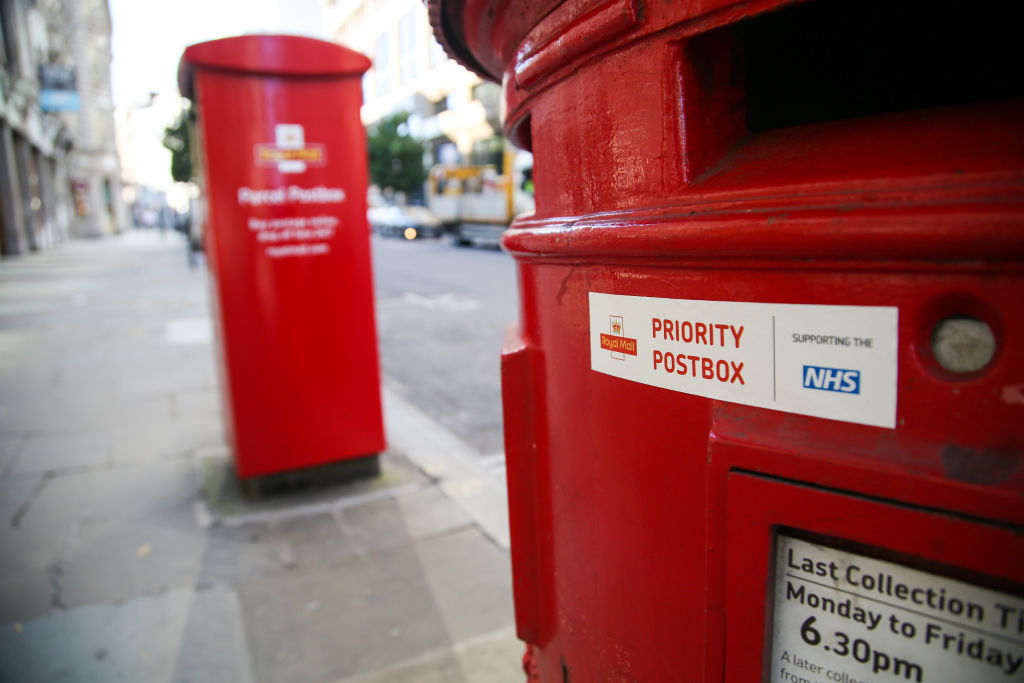Royal Mail loses £1bn and scraps final dividend
18th May 2023 13:27
by Graeme Evans from interactive investor
It’s not a great way to celebrate almost 10 years on the stock market, and investors are clearly no fan of the nation’s favourite postie after these results.

Royal Mail’s decade of stock market ownership is ending with no dividend after the strike-hit postal business slumped £1 billion into the red in a year to forget for retail investors.
Shares are currently a third lower than their 330p flotation price in October 2013, with few investors won over by the “grounds for optimism” highlighted by parent company International Distributions Services (LSE:IDS) (IDS) within today’s annual figures.
- Learn more: SIPP Portfolio Ideas | How SIPPs Work | Transfer a SIPP
The £2 billion FTSE 250-listed stock, which peaked at over 630p in 2018 and then topped 600p again in 2021, had been as low as 173p last autumn before an improved outlook for the UK economy sent them to over 250p by mid-April.
Even though the UK parcels and letter deliveries firm has agreed a path to ending a long-running industrial dispute, the shares were back below 220p this afternoon.
Today’s losses were smaller than feared, but that’s not convinced City broker Liberum to change its “sell” recommendation or price target of 135p, believing that the current valuation implies excessive optimism on the value of the UK business.
The Royal Mail arm racked up an operating loss of £1.04 billion, with the adjusted loss of £419 million a big swing from last year’s £416 million profit. As well as strike action and the inability to deliver planned productivity improvements, the result reflected the impact of lower Covid test kit volumes and a weaker online retail market.
The business is not expected to be in the black until the 2025 financial year, but with the performance of the European logistics operation GLS able to sustain an overall profits return this year. GLS’s adjusted operating profit rose 1.8% to £348 million in today’s results.
Chairman Keith Williams said: “We have a plan that shows a return to group profitability next year and both companies in profit the year after.
“This is not only good for investors, it is good for customers - increasing our ability to improve services and quality - and good for employees in retaining job security.”
However, Liberum analyst Gerald Khoo has doubts about the company’s ambition to fully offset the recent two-year pay deal with the agreed working practice changes. He also believes that longer-term prospects are hit by a lack of pricing power.
Khoo added today: “In our view, the group has yet to set out a convincing strategy to return the UK business to sustainable profitability.”
He is also concerned by the higher investment requirement for GLS, although he adds this business still has strong fundamentals and strategic positioning over the long term.
When shares made their debut in October 2013, retail investors received an allocation of 227 shares equivalent to £749.10 at the offer price, but now worth less than £500. The flotation also saw 613 shares handed to each eligible postal worker.
- Time to switch from FTSE 100 to FTSE 250?
- 10 great UK shares that Warren Buffett would pick
- Stockwatch: time to buy this contrarian small-cap on the cheap?
The first annual dividend payment at the end of July 2014 amounted to 13.3p, before reaching 17p a share by 2019. A strong period of trading during the pandemic ultimately led to the return of £400 million of surplus cash to shareholders, resulting in January 2022’s payment of a special dividend of 20p a share.
Given the recent performance of Royal Mail and the increasing investment needs at GLS, IDS did not recommend a final dividend with today’s results. The company will now be looking to the employee vote on the wage agreement, which takes place between 25 May and 14 June and needs a simple majority to pass.
These articles are provided for information purposes only. Occasionally, an opinion about whether to buy or sell a specific investment may be provided by third parties. The content is not intended to be a personal recommendation to buy or sell any financial instrument or product, or to adopt any investment strategy as it is not provided based on an assessment of your investing knowledge and experience, your financial situation or your investment objectives. The value of your investments, and the income derived from them, may go down as well as up. You may not get back all the money that you invest. The investments referred to in this article may not be suitable for all investors, and if in doubt, an investor should seek advice from a qualified investment adviser.
Full performance can be found on the company or index summary page on the interactive investor website. Simply click on the company's or index name highlighted in the article.